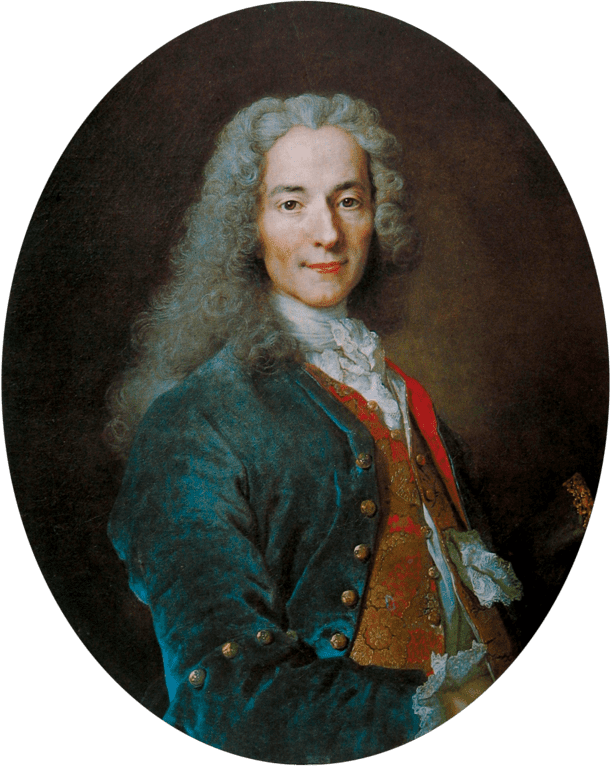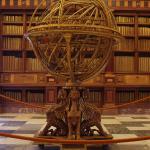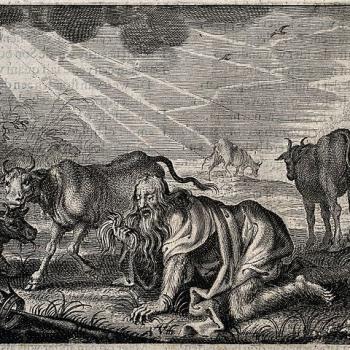Guest Post by Paul Hoffer

Atheist and anti-theist Bob Seidensticker, who was “raised Presbyterian”, runs the influential Cross Examined blog. He asked me there, on 8-11-18: “I’ve got 1000+ posts here attacking your worldview. You just going to let that stand? Or could you present a helpful new perspective that I’ve ignored on one or two of those posts?” He added in June 2017 in a combox: “If I’ve misunderstood the Christian position or Christian arguments, point that out. Show me where I’ve mischaracterized them.” Delighted to oblige his wishes . . .
Bob (for the record) virtually begged and pleaded with me to dialogue with him in May 2018, via email. But by 10-3-18, following massive, childish name-calling attacks against me, encouraged by Bob on his blog, he banned me from commenting there. I also banned him for violation of my rules for discussion, but (unlike him) provided detailed reasons for why it was justified.
Bob’s cowardly hypocrisy knows no bounds. On 6-30-19, he was chiding someone for something very much like his own behavior: “Spoken like a true weasel trying to run away from a previous argument. You know, you could just say, ‘Let me retract my previous statement of X’ or something like that.” Yeah, Bob could! He still hasn’t yet uttered one peep in reply to — now — 60 of my critiques of his atrocious reasoning.
Bible-Basher Bob reiterated and rationalized his intellectual cowardice yet again on 10-17-20: “Every engagement with him [yours truly] devolves into pointlessness. I don’t believe I’ve ever learned anything from him. But if you find a compelling argument of his, summarize it for us.” And again the next day: “He has certainly not earned a spot in my heart, so I will pass on funding his evidence-free project. Like you, I also find that he’s frustrating to talk with. Again, I evaluate such conversations as useful if I can learn something–find a mistake in my argument, uncover an error I made in Christians’ worldview, and so on. Dave is good at bluster, and that’s about it.”
Bible-Basher Bob’s words will be in blue. To find these posts, follow this link: “Seidensticker Folly #” or see all of them linked under his own section on my Atheism page.
*****
The following is a critique of a portion of Bob’s article, “Yeah, but Christianity Built Hospitals!” (4-22-20; update of 2-6-16). It was written by my friend Paul Hoffer.
Christianity had an uneasy relationship with any ideas that didn’t directly support the Church. The 1559 Index Librorum Prohibitorum listed books by 550 authors that were prohibited by the Roman Catholic Church, though prior lists had prohibited books almost since the beginning of Christianity. The list is a Who’s Who of Western thought and included works by Sartre, Voltaire, Hugo, Copernicus, Kepler, Galileo, Hobbes, Spinoza, Kant, Hume, Descartes, Bacon, Milton, Locke, and Pascal. The List was abolished only in 1966.
Sadly, Mr. Seidensticker does not share with his readers why the works were banned. One has to wonder if he has ever bothered to research why the books were put on the Index. Here is what I could find out:
*
Jean-Paul Sartre was an atheist and an existentialist who believed that hell was other people and that all life was obscene. That is a pretty good reason to argue that his works were injurious to morality. I have read several of his works in a Catholic high school and in college, including No Exit and The Flies: that epitomized his philosophy.
*
By the way, there is such a thing as Christian Existentialism that states the universe is not irrational, but merely paradoxical; said paradox is resolved in the union of God and man in the person of Jesus Christ. This is considered acceptable in terms of the Catholic faith.
*
Francois-Marie Arouet, aka Voltaire, was a French historian and an ardent foe of the Catholic Church. His view that the Church needed to be destroyed was the foundation of both Freemasonry and the French Revolution. Several of his works were banned because they were actually obscene. For example, Candide promoted bestiality and lascivious acts. Not only did the Church ban it, but the US government also did too under its pornography laws in the early 20th century.
*
Two of Victor Hugo’s works were banned: Les Miserables and The Hunchback of Notre Dame. They were banned because they were deemed critical of the Church and promoted Republicanism, which was associated with Voltaire’s ideas. They were removed after that view became politically acceptable. Some of Alexandre Dumas’ works, in contrast, were banned because they portrayed priests doing extremely immoral things.
*
In the case of Copernicus, the Church actually did not ban his book on heliocentric theory until 1616 when Protestants used the Church’s acceptance of it to attack it as being anti-Scriptural. Unfortunately, the Church put it on the list for 200 years to deprive the Protestants of a weapon against the Church.
*
Kepler, a Lutheran, had his books banned, for reasons similar to Copernicus in the 1600s. They were not banned because he believed in heliocentrism, which the Church actually accepted.
*
Galileo’s works were originally banned, but between 1716-1835, the ban was lifted. They were not banned because they taught heliocentrism as a theory. They were banned because he claimed heliocentrism was an infallible fact (he was wrong, of course, as the sun is not the center of the universe). [Dave: see more about Galileo’s faulty views of scientific method and supposed “certainty”]
*
Thomas Hobbes’ works were not banned by the Catholic Church because of any scientific reason. He insisted that the state had the right to subjugate religion and that the state could use religion to control people. He was opposed to the Church’s independence from the state. His books were also burned by the English government and his fellow philosophers.
*
Spinoza, an excommunicated Jew, had his books banned because he claimed that the Law was fake, the human soul dies with the body, and that God only exists as a philosophical concept.
*
Immanuel Kant’s Critique of Pure Reason was banned because it denied the Holy Trinity and argued that Jesus was not God, but a human being of moral perfection. Teaching heresy is a pretty good reason to ban the faithful from reading a book.
*
David Hume’s works were banned because he also denied the Trinity and argued that one can not know anything of God by studying creation (which is contrary to the doctrine of the Church). [Dave: actually I discovered that Hume — often falsely thought to be an atheist, whereas he was a deist — actually accepted a version of the teleological argument, or argument from design]
*
Rene Descartes’ works were banned because they were thought to smack of deism: the view that God created the universe as a mechanism, and that we are merely extensions of that mechanism (to be fair, he was a faithful Catholic).
*
Francis Bacon was an anti-Catholic Anglican who encouraged laws that persecuted the Catholic adherents in England. He also claimed in the banned writing that we cannot use our reason to know anything about God (which was contrary to the doctrine of the Church).
*
John Milton’s Paradise Lost was banned by the Church for the simple reason that it made Satan the hero of the story and portrayed God as the bad guy who rigged things so make sure Satan could never win. He was also a rabid anti-Catholic and used the book as a vehicle to claim that many of the Church’s teachings actually were Satan’s. Ironically the first time I read the whole book was taking Masterclasses at the Catholic Seminary and School of Theology.
*
John Locke’s works were not banned because of his political philosophy or because he was anti-Catholic (they should be tolerated but should not have equal rights as other citizens), but because the banned works denied the Trinity, and that Christ was fully divine and fully human (Locke expressed Arian-like views), as well as the validity of Scripture as God’s revelation (he believed that God revealed Himself to prophets but when they wrote down what God revealed to them was merely derived and could be in error).
*
Blaise Pascal’s works were banned because they were seen as supporting Jansenism, a Catholic heresy [Dave: many — if not most — historians now believe that Pascal did not actually accept that heresy]. They were not banned because of any scientific or philosophical reasons.
*
To say that the Church was anti-intellectual is false. There are lots of reasons to ban books. Schools and universities do it all the time. Conservative ideas are banned as a matter of course on most college campuses. Are schools like Harvard and Yale anti-intellectual? Or does Mr. Seidensticker only criticize the Church for protecting the faithful from ideas that could lead them astray? Those works were not banned because they didn’t directly support the Church. They were banned because it was perceived they had something in them that denied Church teaching. It is laughable for someone to complain about censoring people’s works when they do not even know why they were censored in the first place.
*
***
*
Photo credit: Voltaire (1694-1778) – French writer, historian, and philosopher, painting (c. 1725) by Nicolas de Largillière (1656-1746) [public domain / Wikimedia Commons]
*
***













